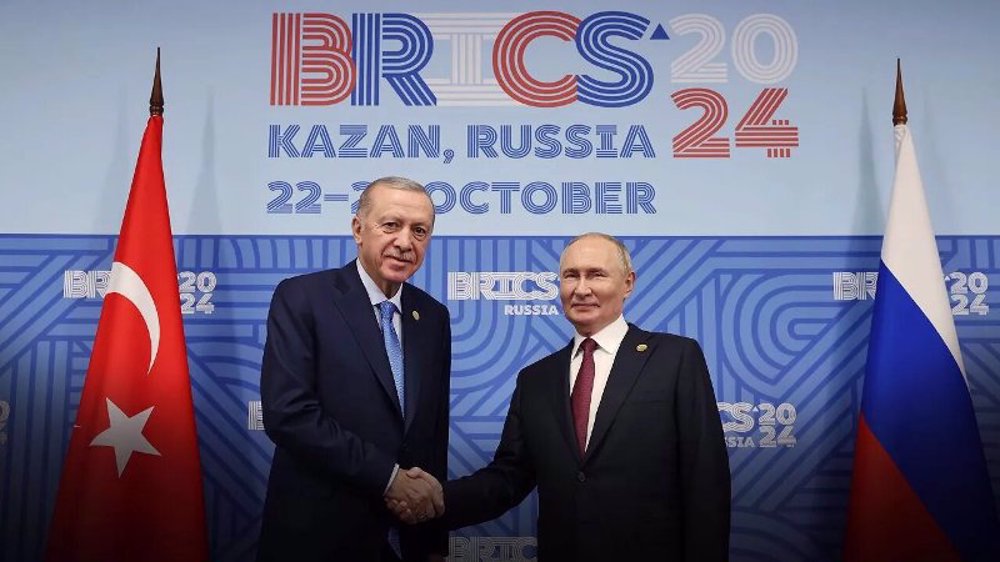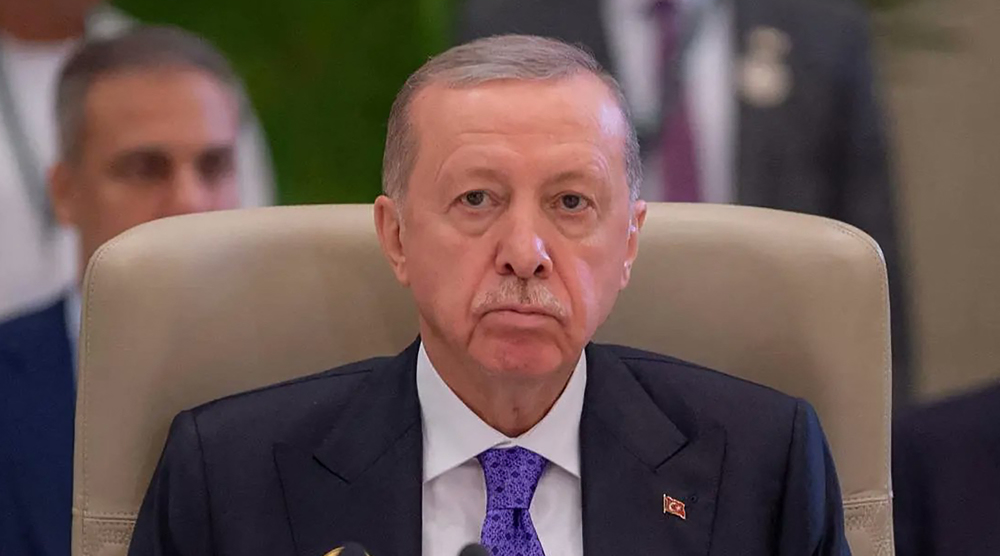Turkey's Erdogan rejects option of EU partnership, urges full membership
Turkish President Recep Tayyip Erdogan says his country opposes proposals of a partnership with the European Union, emphasizing that Turkey's full membership of the bloc is the only option.
Erdogan made the comments in an interview with Italy's Stampa newspaper before his departure for Rome on Sunday evening for a day-long visit where he is scheduled to meet his Italian counterpart Sergio Mattarella.
"The EU is blocking access to negotiations and suggests that lack of progress is because of us. It's unfair. Just like it is that other countries are pushing for options other than membership," he said.
The Turkish president urged the EU to "keep its promises" to Ankara and said, "We want full membership. Other options are not satisfactory."
During a joint press conference with his French counterpart Emmanuel Macron in Paris on January 5, Erdogan said he is “seriously tired” of waiting for the European Union to decide whether to accept his country as a member of the bloc.
“One cannot permanently implore and wait to be finally included,” he said, warning that frustration might tempt Turkey to turn its back on Europe.
The French leader further suggested that Ankara should renounce its ambition to join the EU, adding that the bloc needs to "rethink" the accession process and focus on a possible "partnership” or "cooperation" with Turkey.

Further in his interview with the Italian paper, Erdogan said Ankara has played an "important" role in stemming the flow of migrants to Europe which promoted "security and stability" across the continent.
The country, a small portion of which rests on the Balkan Peninsula in Southeast Europe, took its early efforts to join Europe in the early 1960s and applied for EU membership in 1987. However, the official negotiations of accession to the union began in 2005. The 12-year-long accession talks were effectively halted after Turkey began a massive crackdown on suspects allegedly involved in a July 2016 failed coup against Erdogan.
The EU reacted strongly to Ankara’s purging of thousands of people from state organizations and institutions over alleged links to the botched putsch, putting Ankara on a bumpier road.
Furthermore, the EU heavyweight member Germany and some other European countries have been involved in diplomatic brawls with Turkey on several issues, including the country's human rights record, in recent months.
To obtain membership, Turkey has to effectively conclude negotiations on 35 policy chapters that involve reforms and the adoption of European standards. The EU has opened 16 out of the required 35 chapters, but only one of them has so far been concluded.
Turkish Minister for EU Affairs Omer Celik said on January 19 that Ankara would reject any offer of partnership with the EU that falls short of membership, warning that the current situation gave Turkey no reason to maintain its refugee deal with the bloc.
"A privileged partnership or similar approaches, we don't take any of these seriously. Turkey cannot be offered such a thing," Celik told Reuters in an interview.
Erdogan defends Turkey's "Olive Branch" operation in Syria's Afrin
The Turkish president also defended his country's recently-launched military operation in Syria’s northwestern region of Afrin.
"The Turkish armed forces are not in Afrin to fight armed Kurdish groups. We don't have problems with the Kurdish Syrians, we are only fighting terrorists, and we have the right to do it," Erdogan said.
The Turkish leader emphasized that Ankara was not seeking territorial gains.
Ankara has been pressing ahead with the so-called Olive Branch operation against militants from the Kurdish People’s Protection Units (YPG) in Afrin since January 20.
Ankara considers the US-backed YPG to be a terrorist group and an extension of the Kurdistan Workers’ Party (PKK), which is fighting for independence in Turkey’s largely Kurdish southeast since 1984.
The Turkish incursion in Afrin started after the United States said it sought to set up a thousand-strong force in Syria near the Turkish border comprising the so-called Syrian Democratic Forces (SDF), which is led by the YPG.
Syrian Foreign and Expatriates Ministry said on Thursday that Damascus has complained to the UN about Turkey's military campaign in Afrin, denouncing the operation as "an assault and occupation" of the Syrian territory.
Ankara continues to "spread lies" about its military aggression against Syria and tries to justify the action as an act of self-defense, the ministry said in two letters addressed to the UN chief and the Security Council chairman.
VIDEO | Former FBI agent criticizes US Congress for 'outright corruption'
IRGC chief urges Muslim countries to cut aid routes to Israel
'New chapter in cooperation': Iran, Venezuela sing new MoUs
Jordan sentences former lawmaker for supporting Palestinian resistance
Basij volunteer forces hold massive drills in southwestern Iran
Israeli war criminals 'not welcome', US city says after ICC ruling
US vetoing of Gaza ceasefire resolution ‘disgraceful’: Iran’s UN envoy
VIDEO | IAEA adopts anti-Iran resolution tabled by E3













 This makes it easy to access the Press TV website
This makes it easy to access the Press TV website